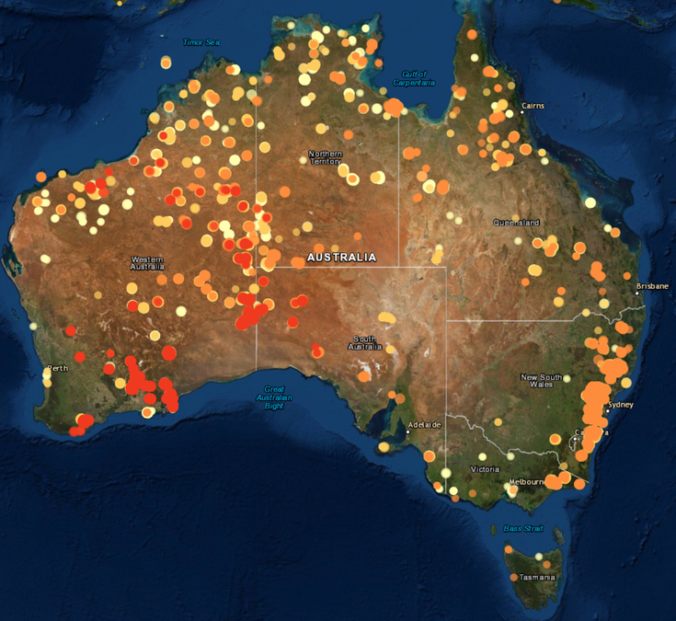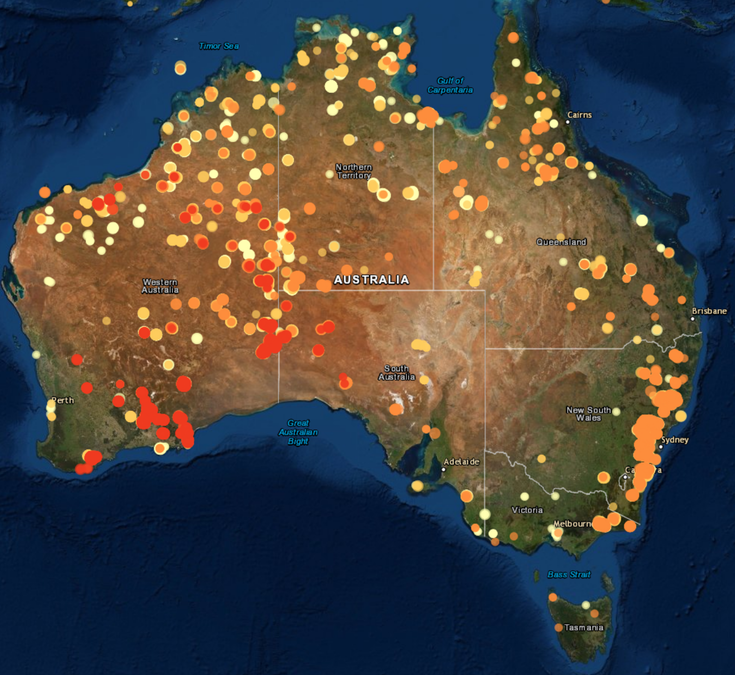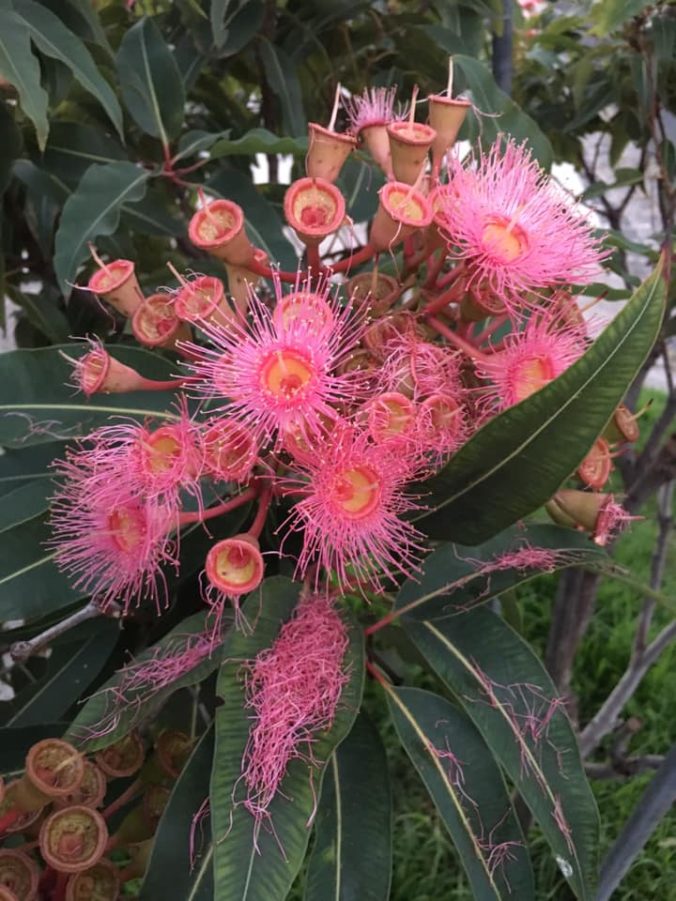The photos and videos coming through from New South Wales and from East Gippsland are honestly hard to comprehend. They look like scenes from some sort of apocalyptic film, not from reality. The fact that people were literally being told to get into the sea to shelter from the fires is just… I honestly don’t have the words for this. Four thousand people sheltering on beaches shouldn’t be something that happens.
This is what a climate emergency looks like.
And our government, with their cheerful lines about how Australia “should be proud of its climate change efforts” (it… really shouldn’t), and “there’s no better place to raise kids anywhere on the planet“, while watching the Sydney Harbour fireworks from a harbourside mansion are coming across less as tone-deaf and more like Nero fiddling while Rome burns.
I posted something about the need to declare a climate emergency on Facebook yesterday, and someone replied to ask what would actually happen if such an emergency was declared. It’s a fair question – even if it is one that is often heard from people who want to use it to show that we inner city Greenies know nothing about what is needed or how disaster relief works – so I figure it’s worth chatting about here. Especially since the alternative is writing another rage-filled post about our government, and I think we can pretty much take that as read at this point. (Incidentally, I have updated my previous rage-filled post about our government with a few more charities to donate to, and would welcome suggestions of any charities I’ve missed from others.)
There are two reasons to declare a state of emergency, one symbolic, and one logistic. I’ll start with the symbolic one, because, unusually, I think it might actually be the more important of the two.
You see, the government is working very, very, hard to preserve a narrative that says ‘this is normal, this is business as usual, we have always had bushfires’. Which leads inevitably to ‘we don’t need to do anything different to what we are already doing’.
This is normal, so we don’t need to lease waterbombing planes from the US Forest Service.
This is normal, so we don’t need to to upgrade the equipment and respiratory masks provided to our volunteer firefighters.
This is normal, so we don’t need to activate the legislation from 1991 that allows us to pay our volunteer firefighters.
This is normal, so we don’t need to meet with all the fire chiefs to come up with long-term strategies to deal with the situation.
This is normal, so we can keep on mining coal and gas both for our own use and to export to other countries so that everyone can continue emitting carbon while the world burns.
That last one is the reason for all the others, frankly. We have a government that can’t afford to admit that we are helping to make climate change worse in ways that is affecting us severely, because it’s afraid of the mining industry.
And that’s a problem, because this wilful blindness, this determination to lean on the ‘Australian spirit’ and pretend that everything is just as it always has been means that we can’t do the things that are necessary to protect people right now from the disasters that are already happening, because that would mean admitting that maybe something has changed, maybe this is different, maybe we need to address not just our response to this emergency but the underlying policies that have allowed us to reach this point.
Maybe we need to talk about climate change.
Maybe it’s too late to talk about mitigation, and we need to talk about adaptation.
Maybe we need to do this even though it is going to have an economic cost in the short term.
Maybe we need to accept that, because the alternative is a human cost that cannot be counted.
***
As for logistics, it’s true that I don’t know a lot about how disaster relief works. But I do know a bit about how organising people works. And it generally works better if everyone is agreed about who is coordinating things, who is in charge of what, and what the priorities are. Our bushfires cross state borders, and we have volunteers coming from other states (and in some cases, other countries) to assist with the effort. Leaving this to the States to organise piecemeal just isn’t a particularly practical thing to do.
It seems to me that there are several things that a government could do, if it had the will to do so (above and beyond what I’ve mentioned above). Just off the top of my head, they could…
- Accept the help we have been offered by other countries
- Liaise with the state governments and state emergency services to coordinate efforts to fight fires that cross state borders or that are large enough to require help to be brought in from less-affected areas.
- Convene experts in emergency management, ask for their recommendations, and act on them.
- Get the Navy and Army Reserve involved in coordinating evacuations and getting supplies to areas that have been isolated by the fires – logistics is a big part of what the army does. Let’s make use of that. (The Andrews government in Victoria has requested and received military aid for evacuations. But this should be something that is offered up-front where needed, rather than requested ad hoc.)
- Budget more money for disaster relief, and coordinate with state and local governments to make sure it gets where it needs to go in a timely fashion and with a minimum of red tape.
- Build a fleet of waterbombing aircraft (we currently lease ours from California, but as our fire seasons get longer and begin to overlap, this will become a logistical issue)
- Review building standards for new houses, particularly in at risk areas – consider whether some areas are too risky for rebuilding to be wise.
- Create a strategy to ensure that vulnerable people (the elderly, the disabled, people with low incomes, people without personal transport) are able to be evacuated early and to places with the resources to look after them in an emergency. Coordinate care needs for people with chronic illnesses or disabilities who have been evacuated.
- Create a plan for domesticated animals displaced by fire – if you evacuate people but can’t take their pets or livestock, you are going to have issues.
- Make sure nobody is being kicked off their pension for failing to check in when their house was on fire or when they were off fighting fires themselves
- Once the fire season is over, sit down and create a serious policy about climate change and how we are going to have a country that is still possible to live in ten years from now.
I don’t want Scott Morrison on the front line holding a hose or making sandwiches. I don’t want his thoughts and prayers. There is nothing wrong with any of these things in principle, but they are not his job right now. His job is to lead, to make decisions, to provide his ministers, the states and the people on the front lines with the support they need to to do their jobs.
That’s what he signed up for, and that’s what he should be doing. But the first step in the process is to acknowledge the reality of our situation.
This is not normal.
This is new.
And we need to take it seriously.




